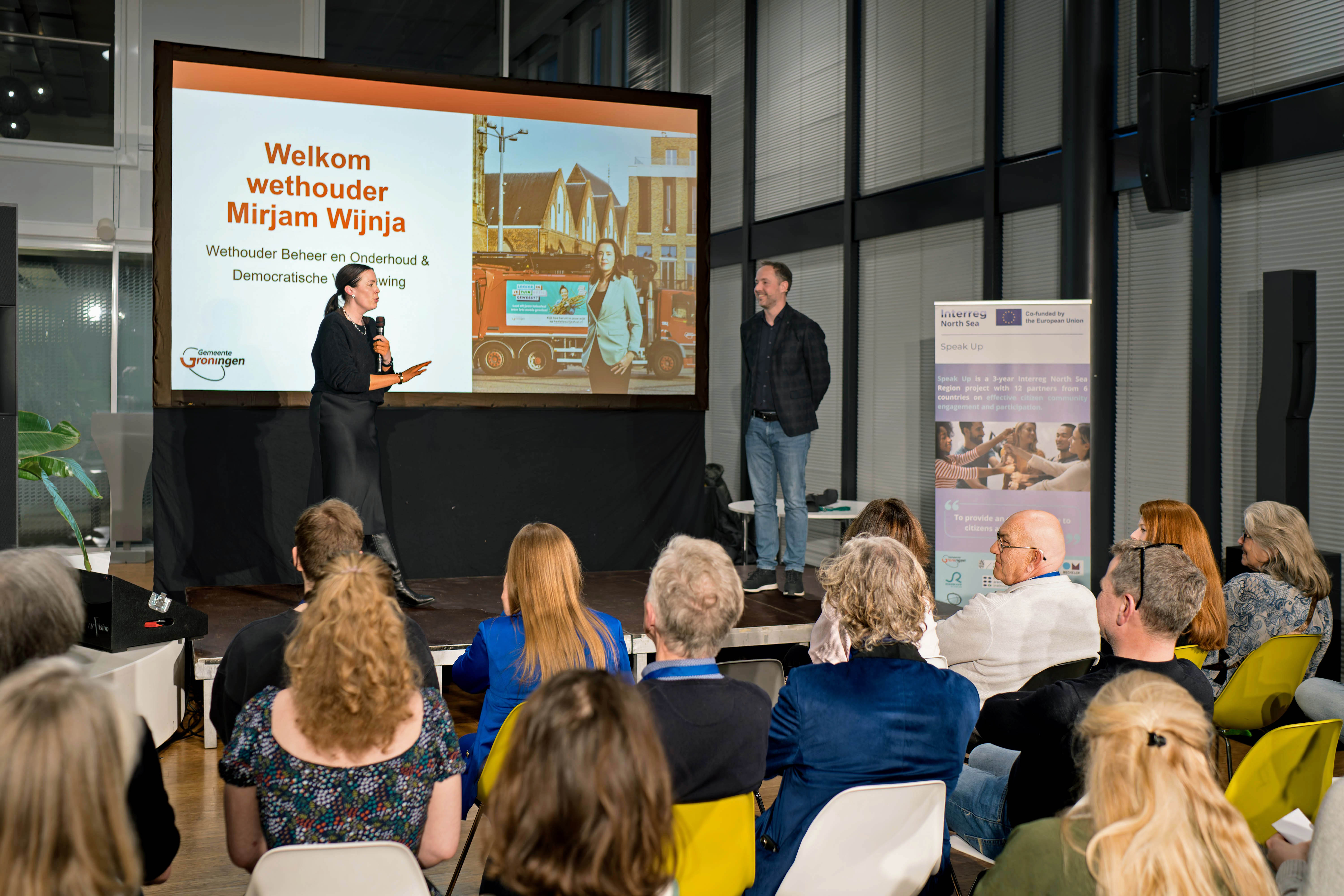In the municipality of Groningen, a citizen assembly decides over the new waste policy. 120 carefully selected participants engage in dialogue regarding waste reduction, and formulate their recommendations towards the city council. A citizen assembly is one of the highest forms of citizen engagement forms possible, and it is the first time this held in Groningen. Oelviya Visscher, policy advisor waste and circularity, is closely involved with this project. In this interview, we discuss with Oelviya what it is like to organise such an assembly, and why it is important to involve citizens in the policies that affects them.
The municipality of Groningen wants to be waste free in 2030. This does not mean that there will be no waste at all – but that all waste will be separated and recycled as optimally as possible. At the moment, the separation and recycling rate is at 69%, but we want to take it to a 100%. To realise this, we need to develop a new waste policy, and this time this isn’t done by the municipality on its own, but through its citizens that are represented in the citizen assembly. They will formulate recommendations that the city council shall implement and execute.
Last year, several political parties in the city council wanted to better involve citizens in the new waste policy. The current policy runs until 2026, and the political parties deemed it important that citizens had more of a say in local decision making. To become waste free, we have to radically change the way we see and deal with waste. Waste is something that affects everyone, every day. This is how the idea arose to organise a citizen assembly on this topic. In a citizen assembly, 120 people engage in dialogue over a particular topic. This group is carefully selected, and mirrors the population of the municipality. We have randomly sent 15000 letters, to which 830 citizens indicated interest to participate. Through an online survey we eventually selected a 114 people based on criteria such as their neighbourhood, gender, education level, and age. The eventual group is a very close match to the actual population of the municipality of Groningen.

We have had five of the in total six sessions now. The first was focused getting to know each other, and introduced the topic. Accessibility was the key word here, everyone needs to understand what is going on. For example, there are translators available and there is a compensation fee for day care costs, in this way, truly anyone can attend the sessions. During the second session we’ve had several excursions to the waste treatment plant, but also to places like the textile hub and community centres. The third session were discussions with experts, the fourth and fifth session are all about formulating and writing the recommendations. Between the fourth and fifth sessions, all the recommendations got checked by civil servants on their legal and financial feasibility. The promise that we made is that all recommendations have to be implemented by the city council, unless there are weighty and important arguments against it or if it is beyond the scope of the topic. This means that citizens temporarily take over the role of the city council, and that is rather unique.
From experiences from cities like Amsterdam, Rotterdam and the Province of Drenthe, we see that citizen assemblies make an positive impact. It curates better policy, and increases the support base for said policy and the government as a whole. We aim for the same results in Groningen. Together with the University of Groningen, we are evaluating and monitoring the impact that this citizen assembly has on its participants, and the wider population on Groningen. This is how we ensure awareness and involvement for a longer period of time. What we have learned is that you always have to make these processes as accessible as possible. Without the right compensation, translation and practical support, you won’t reach a wide audience. Having a good representation is super important. Besides that, there truly has to be a purpose and need for a citizen assembly, as they are very costly to organise. The recommendations need to have a certain weight for it to work. We also want to realise the ideas being put forward as soon as possible, to stick to the promise that we made. Otherwise, the hard build trust might quickly erode again.

